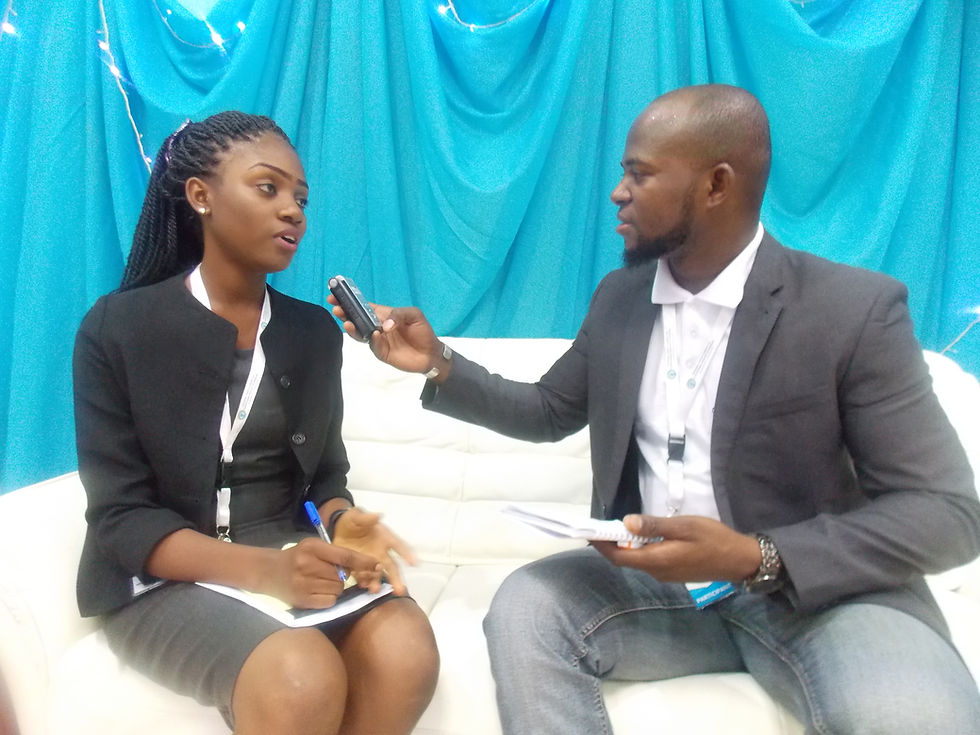Voice of Peace : Meet young Activist Janet Wasinda from Nigeria
- El Hadj Djitteye
- Mar 16, 2017
- 3 min read

with Janet Wassinda in northern eastern region of Maiduguri during the regional youth summit on contering violent organized by the American Organisation Search for Common Ground. November 2016
Q: Would you introduce yourself?
A: my name is Janet Wasinda. I am a Nigerian, to be precise a resident in Joss Platoon state.
Q: Describe the current situation of Violent Extremism in Nigeria and what can be done to counter violent extremism effectively?
A: Well, to point out the problem concerning violent extremism. We have them in different categories. In north eastern Nigeria the Boko Haram issue, in the middle belt it must do with the sectarian conflict like Christian and Muslim conflict, then in the south we have other extremism with the Niger delta militants and other violence like the herder pastoral issue. Those are the issues Nigeria is facing.
Q: What are Young Nigerian Women leaders doing to counter Violent Extremism?
A: I think it’s now that women are trying to understand that they have a place in their society, their voices need to be heard. Often, they think to stay at home and take care of the children. But when you look at it from another side you find out that they are very influential in terms of the children and the men. So, the women of Nigeria are beginning to use their voices to contribute to countering violent extremism.

Q: What is your specific role as a young leader? How are you working and with whom? Is it a national or local leadership movement?
A: My specific role is working in Joss. I tried to bridge the gap between Muslim and Christian young girls because I saw the importance of starting with young ladies trying to create a platform which is very real to help to inter act with each other to promote peace among them in the future.
Q. Who do you work with?
A. I work with my friend Mariam Muhammad Dansoba. We are friends and we attended the same training in search for common ground four years. We saw the need to partner although we were from different religions, Christian and Muslim, so that they can help young girls to make a change in our communities. It’s a movement of young girls based in Joss in the middle belt.
Q: What are your challenges?
A: Some of the challenges we are facing include the acceptance of communities. Because it’s very difficult for people to come together after a series of crises and conflicts. So, this is one of our biggest challenges.

Q: Do you have successes stories and accomplishments?
A: One of the things that gives me joy is the impact we see in these young girls. They are so excited by the pace of exchange we create for them to inter act with each other because they are segregated in their communities. This environment we create for them helps them to develop love between each other. Our main asset is search for common ground. We seek to create this environment for these young on a larger scale, because when you do it little by little it will take time to reach others. I think that we must do this kind of orientation and advocacy on a little bit to achieve larger skills directly on victims of violent extremism.
Q: Share a positive case studies. Are you optimistic about the future of women leadership at advocating for women's rights and conflict prevention?
A: well I do a lot of work in this process with my friend Mariam, most of the time in our traditional society women don’t have the opportunity to get access to education. We are struggling to sensitize our community women to claim their rights and play a great role in the community.

Q: What is your last word to us?
A: peace is very possible if we give it a chance, if we are willing to accept our differences and tolerate each other.
Editor : John H. Sime










Comments